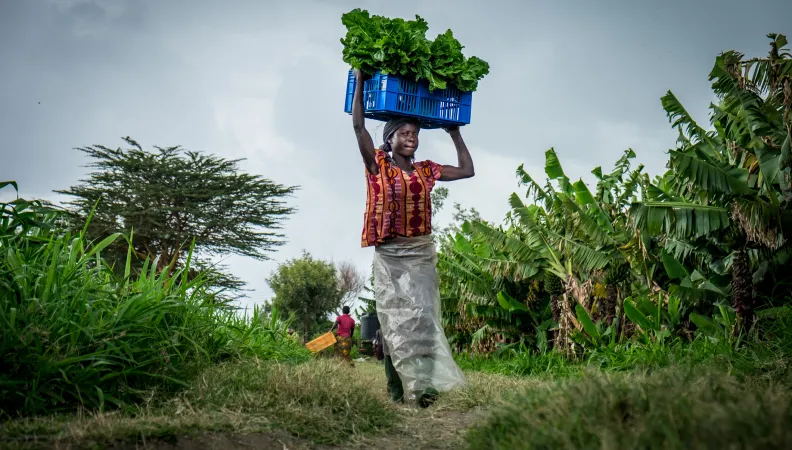Share the page
Tapping into the private sector for food system transformation
Published on
- Janvier K. Litse Africa Finance Development Advisor Programme alimentaire mondial
- Divya Mehra Strategic Partnerships Adviser Programme alimentaire mondial
- Varya Meruzhanyan Strategic Partnerships Officer Programme alimentaire mondial


Private Sector & Development #39 - Food security: the contribution of the private sector
To mark World Food Day on 16th October 2023, the 39th issue was devoted to food security. It provides a collective reflection on the subject and highlights the need to get the private sector more involved in safeguarding food security across the globe.
To attain SDG 2 (Zero Hunger), sustainable food systems – including small-scale farming, agri-SMEs, and local food processing – will require structured development. This necessitates private engagement (bringing innovation and efficiency) and responsible private finance. To enable this, development partners and the UN need to support governments to establish a conducive environment.
The slow progress towards Sustainable Development Goal (SDG) 2 (Zero Hunger), over recent years has been further impacted by the global food and energy crises arising from global supply chain disruptions, the repercussions of the Covid-19 pandemic and the war in Ukraine. The cost of food systems transformation is estimated at USD 300-350 billion per year, and the part of this directly related to SDG 2 is estimated at USD 170-190 billion.
Official development assistance remains insufficient; thus, the need to diversify the sources of development finance is greater than ever. To date, private financing has not led to sustainable solutions in addressing food security and nutrition. For development institutions, leveraging private financing for SDG 2 does not mean receiving private funding flows to deliver on their mandates. Rather, it entails working with partners to identify potential private financing solutions that are sustainable, mutually beneficial, and that positively impact SDG 2.
OPPORTUNITIES IN FOOD AND NUTRITION
There are components of the food system and agri-food value chains – compared with other development challenges not as tangible as food or that largely require public investment – that could be scaled up and sustainably implemented using innovative public-private sector models. Here, agencies such as the World Food Programme, supporting over 160 million people in 120 countries in 2022, can enable the scaling up of sustainable solutions, with:
- Financial inclusion – resource management, insurance, and savings: In the context of climate shock mitigation, WFP assists at-risk farmers and their families with a comprehensive risk management approach, reducing financial vulnerabilities and promoting resilience. This includes assets, insurance, diversification, microcredit, and savings. Strategies include partnering with financial institutions and local public entities in sharing risks. Access to finance enables smallscale farmers and agri-processors to become viable businesses.
- Market access and value chains: Smallholder farmers face challenges in accessing markets due to limited infrastructure, lack of financial resources, and inadequate market information. WFP helps improve smallholder farmers’ livelihoods and the supply of nutritious foods, by connecting them to markets. It provides market intelligence and technology, improving smallholder farmers’ integration into formal value chains. WFP sees opportunities in attracting private sector finance to support the structured development of small-scale farming, agri-SMEs, and local food processing by anchoring demand and providing diverse technical assistance across value chains.
- Support for local production ofcomplementary foods: WFP has extensive experience in the local production of quality, nutritious foods, due to its engagement in producing for local markets and its procurement for governments. However, meeting the demand for specialized nutritious foods (SNFs) is challenging, due to the limited supply chain agility and resilience (sourcing reliability) of current supplies. Establishing local production of SNFs is difficult due to the lack of market incentives – beyond institutional purchasing – for private investment and barriers such as high investment and regulations.



